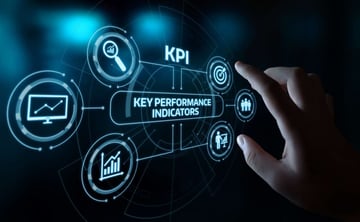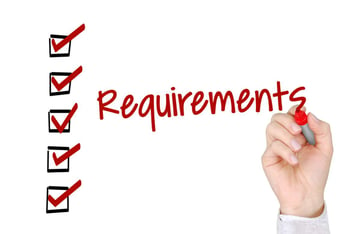Top KPIs to Monitor for a Property Management Virtual Assistant
When choosing a VA as your marketing assistant or for another role, the relationship starts with high hopes of productivity and efficiency. So, how can property managers ensure their virtual assistants perform as they hoped?
As remote team members, virtual assistants for property management play a crucial role in handling various tasks, from administrative duties to tenant communication and property maintenance. To ensure that these VAs are delivering the desired results, it is essential to monitor key performance indicators (KPIs).
Today we talk about what KPIs are, why they are important when managing remote teams, and discuss specific metrics that can help property management virtual assistants succeed.
What are KPIs?
KPIs, or key performance indicators, are quantifiable metrics organizations use to evaluate and track progress toward their goals.
For property management virtual assistants, KPIs provide insights into their performance, productivity, and effectiveness in carrying out their responsibilities. By monitoring these metrics, property management companies can ensure that their virtual assistants deliver value and contribute to overall business success.
 Why are KPIs Important for a Property Management Virtual Assistant?
Why are KPIs Important for a Property Management Virtual Assistant?
KPIs are essential for virtual assistants and property managers to evaluate success. When trusting critical work for your company to virtual team members, it's crucial to make sure they deliver based on your expectations so your company benefits fully from skilled VAs.
Here are a few ways KPIs and metrics are crucial for your property management virtual assistant.
Performance Evaluations
KPIs provide a systematic way to evaluate the performance of virtual assistants. By tracking specific metrics, property management businesses can assess the quality and timeliness of work, allowing them to identify areas of improvement and provide constructive feedback.
Productivity Enhancement
Monitoring KPIs enables property management businesses to identify bottlenecks and inefficiencies in the virtual assistant's workflow. By understanding the areas where time and effort are being wasted, companies can implement strategies to enhance productivity and streamline processes.
Goal Alignment
KPIs help align the virtual assistant's goals with the broader objectives of the property management company. By setting measurable targets and tracking progress, both parties can work together towards achieving common goals, fostering a sense of accountability and motivation.
Key KPIs to Monitor for a Virtual Property Management Assistant
What are these "KPIs" you should monitor when managing a remote team? We'll mention a few good ones, although this is by no means an exhaustive list!
-
Response Time: Timely communication is crucial in property management. Monitoring the response time of virtual assistants to tenant inquiries, maintenance requests, or other stakeholder interactions helps ensure that customer service remains efficient and tenants' needs are met promptly.
-
On-Time Task Completion Rate: Tracking the rate at which virtual assistants complete assigned tasks provides insights into their efficiency and workload management. A high task completion rate indicates that your VA effectively manages priorities and meets deadlines.
-
Accuracy and Quality: Accuracy is paramount in property management tasks such as data entry, financial record keeping, or lease agreement preparation. By monitoring accuracy rates and quality of work, property management companies can ensure that VAs maintain high standards, reducing errors and minimizing potential risks.
-
Occupancy Rate: For property management VAs involved in tenant acquisition and retention, monitoring the occupancy rate is crucial. This metric measures the percentage of occupied units within a property portfolio. A high occupancy rate indicates effective tenant management, while a low rate may require marketing or tenant retention strategy adjustments.
-
Tenant Satisfaction: Property management VAs can play a significant role in tenant satisfaction by promptly addressing maintenance requests, responding to inquiries, and maintaining positive tenant relationships. Regularly surveying tenants for feedback and monitoring satisfaction ratings can help gauge the effectiveness of virtual assistants in tenant management.
-
Task Prioritization: Property management virtual assistants often juggle multiple tasks simultaneously. Metrics such as task turnaround time or adherence to priority levels can help gauge their prioritization skills.
-
Professional Development: Encouraging continuous learning and growth is important for virtual assistants. Tracking metrics related to professional development, such as completion of training courses, certifications obtained, or participation in industry webinars, can help assess their commitment to self-improvement and staying updated with industry trends.
-
Feedback and Communication: Effective communication is vital for virtual assistants to collaborate with property management teams and understand expectations. Regularly monitoring feedback from colleagues, supervisors, and tenants can provide valuable insights into the VA's communication skills, responsiveness, and ability to adapt to feedback.
The VPM Academy is an excellent resource for tracking a VA's progress in professional development. Taking our industry-related courses and earning certifications means your virtual assistants are working hard to learn more and be effective in their roles.
 How to Implement KPI Tracking
How to Implement KPI Tracking
To effectively monitor KPIs for property management virtual assistants, consider the following steps:
-
Define Clear Objectives: Clearly outline the goals and expectations for virtual assistants based on their role and responsibilities within the property management company.
-
Identify Relevant Metrics: Choose KPIs that align with the objectives and provide measurable insights into performance, productivity, and customer satisfaction. Select metrics that are specific, measurable, attainable, relevant, and time-bound (SMART).
-
Set Targets and Benchmarks: Establish realistic targets and benchmarks for each KPI, taking into account industry standards and the company's unique requirements. These targets should be challenging yet achievable.
-
Implement Tracking Tools: Utilize technology tools and software platforms to facilitate data collection and analysis of KPIs. These tools can automate data capture, generate reports, and provide real-time insights for performance evaluation.
-
Regularly Review and Provide Feedback: Conduct regular performance reviews and provide feedback to virtual assistants based on the KPI data. Use this opportunity to recognize achievements, address areas of improvement, and set new goals.
Skilled Remote Team Members Exceed KPIs
Monitoring KPIs is vital for ensuring the efficiency, productivity, and success of property management virtual assistants. The best remote team members will routinely exceed metrics and goals in delivering quality work for the success of your property management business!
So, where can you find these exceptional VAs? The VPM Solutions platform has more than 25,000 virtual assistants with skills in the property management industry. Set up a Free Company Profile and find virtual team members to exceed your expectations!




















